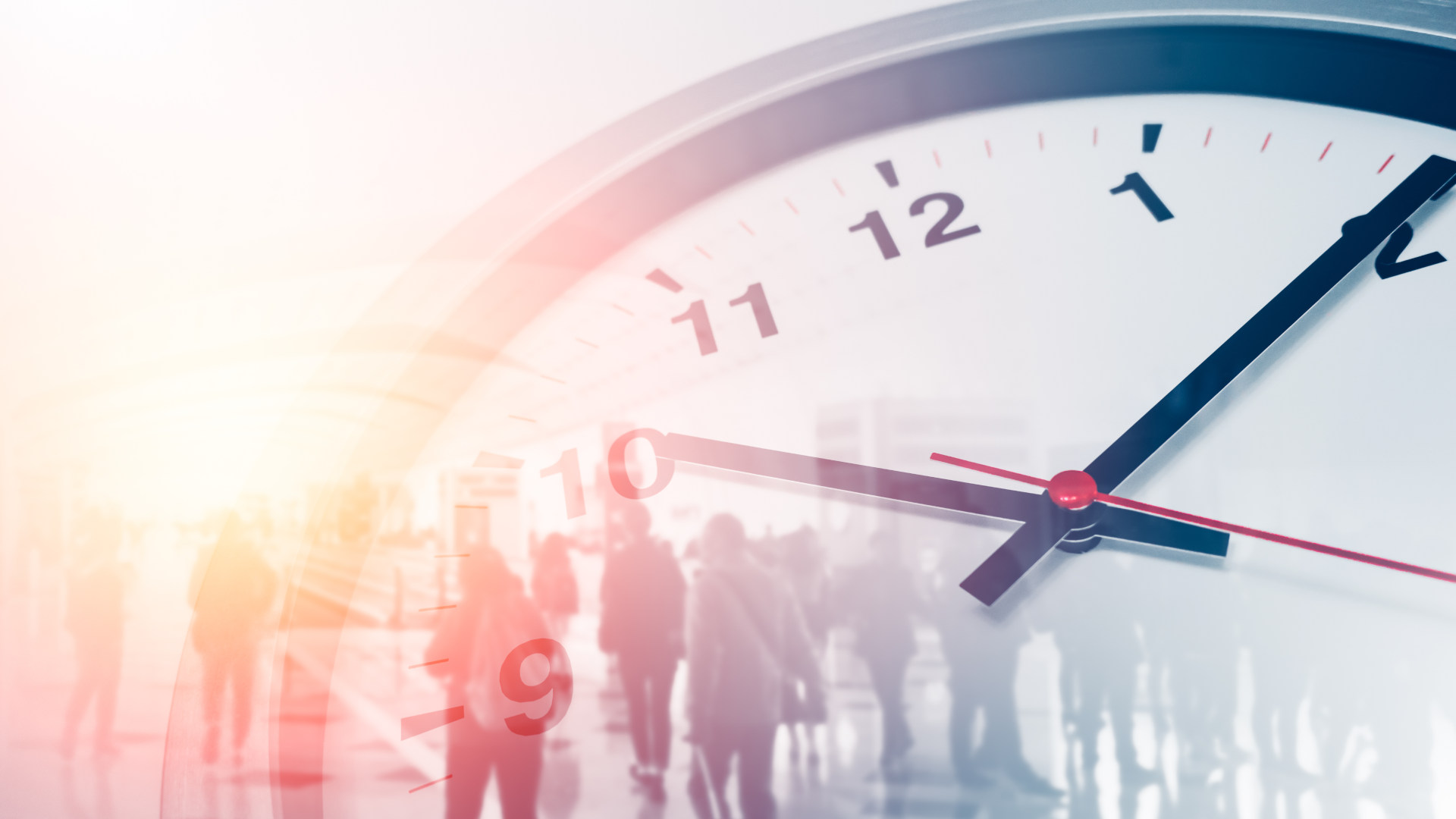Grab your cheat sheet |
Do you feel more tired than ever before? Are you struggling to keep your eyes open during the day or finding ticking off your 'to-do' list an uphill struggle?
Sometimes, fatigue can set in quickly after you’ve blasted a workout, or you can start feeling sluggish at your desk. While feeling extremely tired at times isn't uncommon—chronic fatigue can become a real issue.
If you’re always tired, finding out the root cause can improve your body's ability to generate energy when you need it most.
The good news is, here we're going to explain when tiredness can become a worry, the common reasons for feeling tired all the time, and how testosterone may play a part in your fatigue.
Let's dive in.
When should you worry about tiredness?
We've all had days where tiredness has hit more than usual. And, all in all, this is nothing to be concerned about under certain conditions or at specific times of the day.
It's pretty normal to feel tired if you have had a late night followed by an early morning. It's also normal to feel tired if you have had an overly–intense workout or a hectic day at work.
But, if you feel tired frequently despite sleeping well and having a fairly relaxed lifestyle, you should investigate it further. You could be suffering from extreme fatigue.
Keeping a diary rating your tiredness and your energy levels can help you track sleep patterns while finding out if there's an ongoing issue to address.
Read: Our guide on how sleep can impact your energy as well as your testosterone levels for more insider tips and information.
6 common reasons you may be tired

Now that you know when it might be time to investigate whether you're wrangling with chronic fatigue, let's look at some of the reasons why this might be happening—starting with a little something related to drinking enough water.
1 . Dehydration
When it comes to getting a good night's sleep, sometimes it’s what you do during the day that can affect your body at night time. Dehydration is a common contributor to lack of sleep, especially in athletes.
Dehydration is when you do not drink enough water for your body’s needs. Each person has different hydration needs depending on their lifestyle and demographics.
FYI: The general recommendation is that 11 to 15 cups per day is what you need to stay hydrated. Athletes need more than this and run a higher risk of dehydration due to increased sweat rate during exercise.
So, make sure you hydrate steadily throughout the day. If you've been exercising and pushing for the burn, remember that you'll need additional hydration to keep up with losing fluids during your workout. Be mindful not to drink too much in the run-up to bedtime, though—needing to pee during the night can seriously interrupt your sleep.
2. Over-exercising
Did you know? Exercise is excellent for sleep regulation and reducing tiredness. But, overexercising can have the opposite effect. Yes, there is a limit.
Feeling fidgety
There's nothing worse than getting ready to sleep but feeling restless and fidgety because your muscles are over-pumped.
Shaky and aching muscles can keep you awake and disrupt your sleep throughout the night. Plus, the endorphins released during exercise can give many people a 'buzz' of energy which stops them from sleeping. If this happens night after night, you can bid 'goodbye' to a solid night's sleep.
Striking a balance
To make sure you sleep well after working out, stick to a planned training schedule and try not to over-exert yourself.
Aim to work out earlier to allow your endorphins to drop before you go to sleep. Performing a cool-down and stretching routine after your workout can also prevent sore muscles.
Read: Our guide on the link between working out and your testosterone levels for energy-boosting insider training tips.
3 . Caffeine and alcohol

If you're a big coffee fan (and many of us are—yum), you should consider the effect caffeine can have on your sleep.
Caffeine is a stimulant that can give us alertness, focus, and energy. These effects are welcome during the day when you are concentrating at work or hitting the gym. However, too much caffeine can impact your ability to fall asleep.
Another stimulant that affects sleep is alcohol. Many people claim alcohol helps them with sleep. While it may occasionally help them drift off initially, taking too many tipples too close to bedtime will likely keep your body in a lighter sleep with less time in the deep sleep cycle. The deep sleep cycle is vital for glucose regulation, tissue repairs, and immune system function.
Low sleep quality due to stimulants like caffeine and alcohol causes fatigue the following day and can contribute to inflammation. So, limit your overall intake of alcohol and coffee, and avoid these stimulants in the afternoon and evening to ensure you have a deep sleep.
4. Stress
In recent years, there's been a significant shift in understanding how our mental health affects our physical health—and vice versa. Research shows that stress is a cause of daytime sleepiness and struggling to fall asleep.
Stress is a natural response to external factors that pose a threat. But in modern society, we find ourselves stressed far more regularly than our ancestors. Stress can lead to anxiety, another disorder that can affect sleep.
If you're struggling with stress, minor lifestyle changes may help manage your stress levels. Regular exercise, daylight, meditation, and having a hobby that brings you joy are all relaxing activities that can reduce stress and anxiety.
But, if you find no change and think you could be suffering from chronic stress, speak to your doctor to help you improve your mental health and fight the effects of constant fatigue.
5. Not enough sleep
Sometimes, the simplest solution is the best. If you simply can't pinpoint any lifestyle factors affecting your sleep, maybe you’re not getting enough of the good stuff. Yes, sleep disruptions (as you may have guessed by now) can make you feel extremely tired.
Sleep more, yawn less
It's common knowledge that adults need seven to nine hours of sleep each night. Despite this, a third of people in the US claim they are not getting enough sleep. Poor sleep habits, overworking, and increased use of electronics are common causes of sleep deprivation.
How to get better quality sleep

To ensure you're getting enough sleep, start calculating how long you are sleeping. Track what time you go to bed each night and when you wake up. If you're not reaching the recommended hours of sleep, alter your schedule to fit this in comfortably.
To do so, you should also make notes of any sleep interruptions. You might not realize you're sensitive to noise or the bright sunrise, so consider earplugs or a sleep mask.
Keeping a note of sleep interruptions may make you aware of sleep disorders, too—common issues like sleep apnea. Here are some other quick tips on avoiding poor sleep quality:
- Avoid smartphones or tablet screens at least an hour before bedtime
- Set a comfortable temperature in your room—experts say that 18 degrees is the 'slumber time sweet spot'
- Don't drink alcohol before bedtime, as this will heighten your blood pressure and disrupt your sleep quality
- Make sure your bedroom is dark and distraction-free when you settle down to sleep
6. An imbalanced diet
One of the things that can cause sleep problems and make you feel chronically sapped of energy is an imbalanced diet.
Yes, there could be a few blank spots in your diet that result in excessive sleepiness. If your diet isn't balanced and well-rounded, you can experience deficiencies that will make you feel tired, constantly.
To ensure you're covering all dietary bases, here are a few quick tips for your reading pleasure:
- Eat more iron-rich foods to avoid the likes of iron deficiency anemia
- Aim to eat five whole portions of fruit and veggies per day. Consume a vibrant variety of colors ('eat the rainbow'), and you'll get plenty of energy-boosting vitamins in your system
- Get plenty of quality proteins in your diet, including fish, lean meats, pulses, nuts, seeds, and soy products like tofu. Around 1.2 grams per kilogram of body weight will do the trick
- Take multivitamins (vitamin D is one of the best supplements you can take) and supplements to fill in any nutritional blanks and meet your dietary needs
Get your diet in shape and you can fight off so many of the common symptoms related to constant tiredness.
Could testosterone affect your tiredness?
Did you know? There's a surprising biological relationship that's not often discussed—the strong link between testosterone and tiredness. Yes, that's a thing.
A low testosterone level can cause chronic fatigue in men. And, a study of cancer patients found that testosterone supplementation can actually reduce tiredness while tackling the symptoms of decreased energy.
Fact: This relationship between testosterone and tiredness works the other way around, too. Research investigating the link between testosterone and overtraining in rugby players found that low testosterone is a side effect of fatigue.
Testosterone and sleep are closely linked, whichever way you view it. Low testosterone causes tiredness, which, in turn, supports low testosterone levels. So, how do you break the cycle?
Level up your t levels with TestoPrime
To fight chronic fatigue and start feeling like yourself again, choosing the right testosterone-boosting will give you a huge push in the right direction. And, TestoPrime is the answer.
So, if you think low testosterone may play a part in your tiredness, consider Testoprime as a safe and natural method to boost your testosterone levels.





